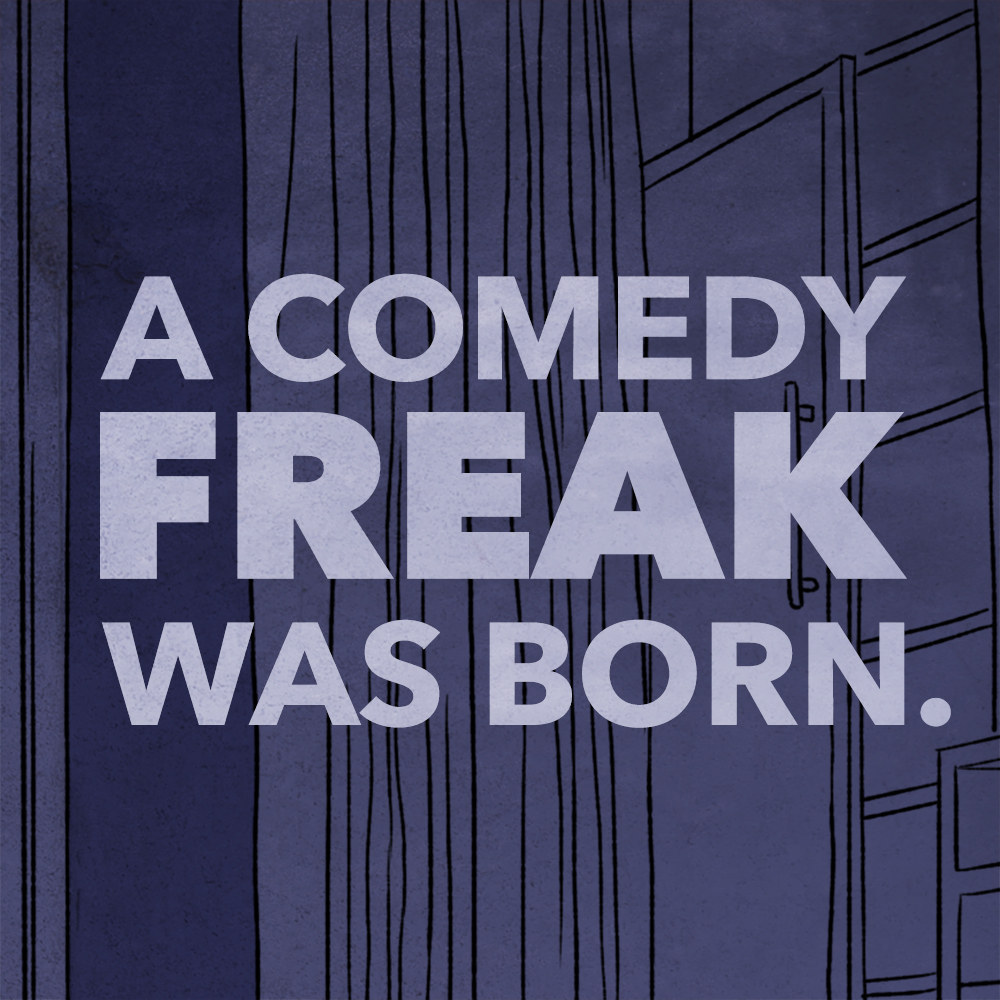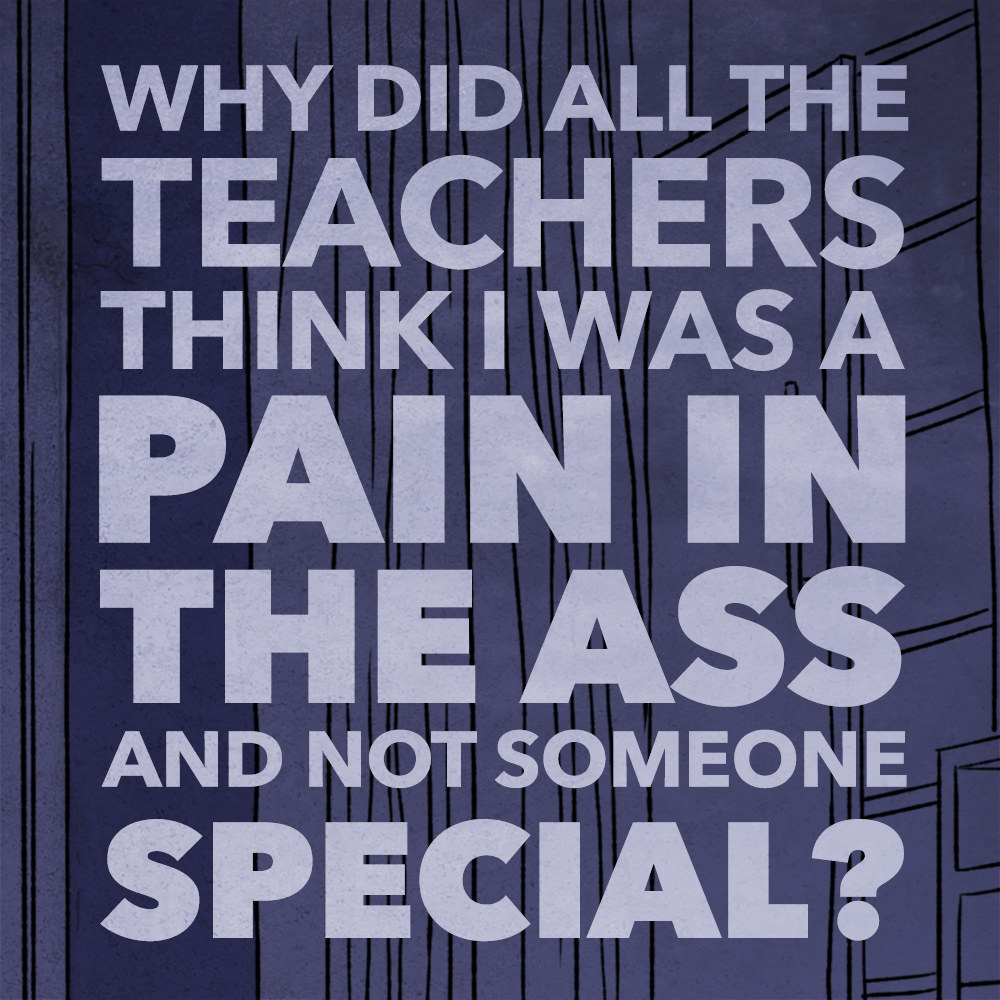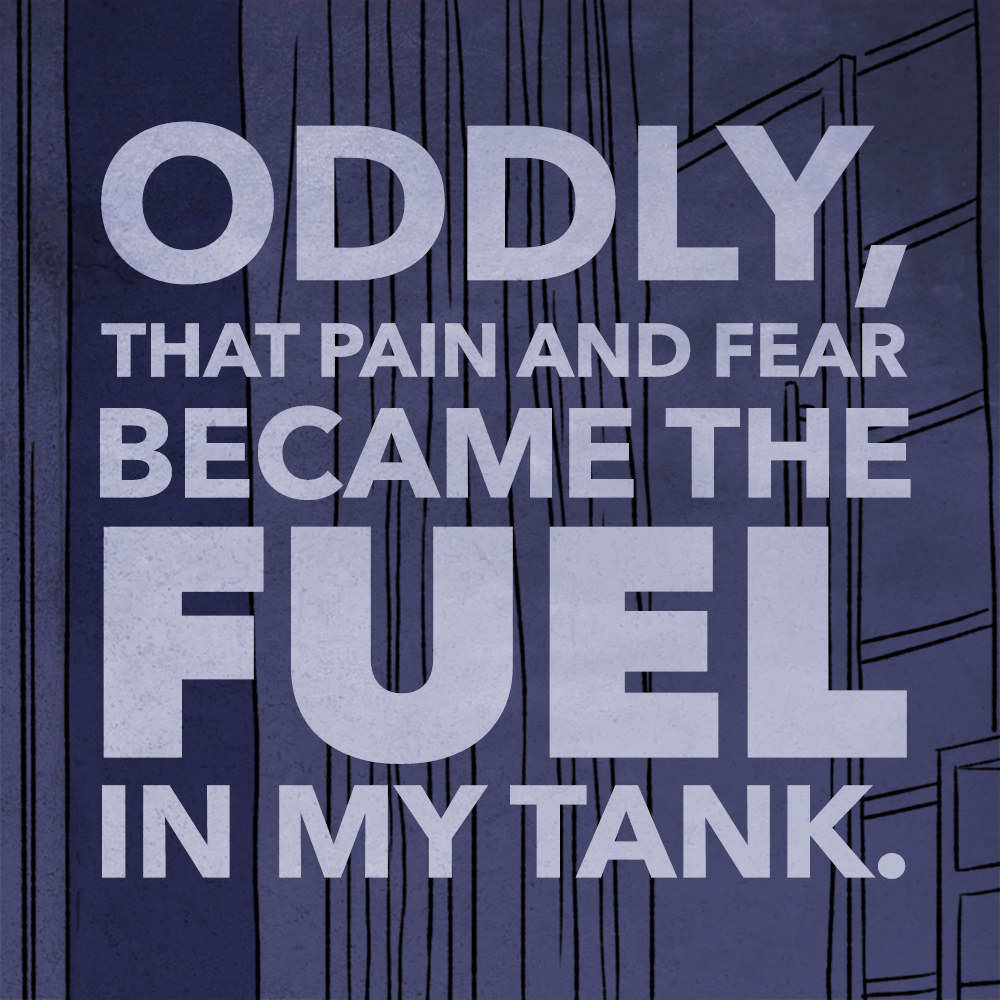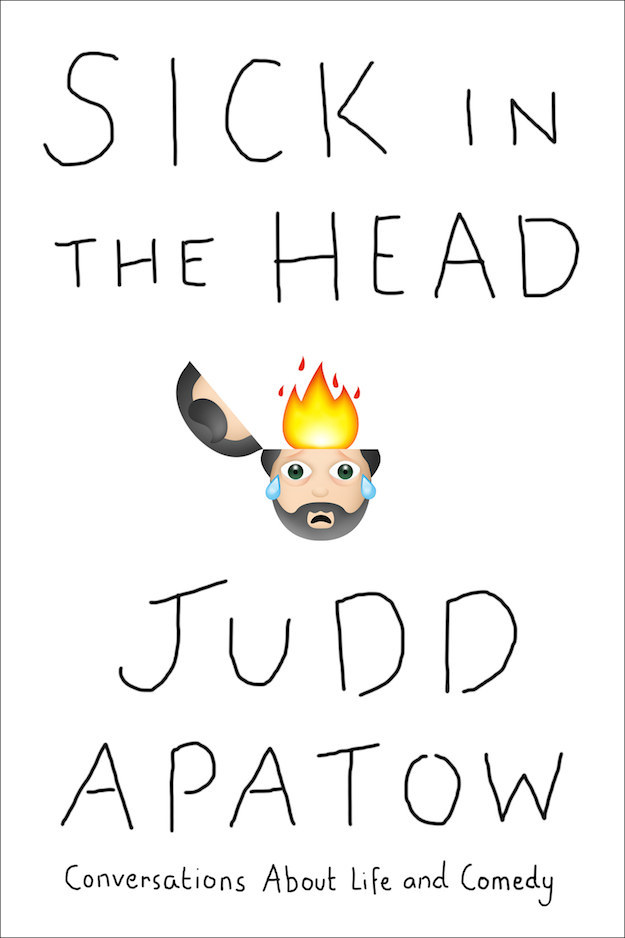What follows is a slightly edited version of Judd Apatow's introduction to his new book, Sick in the Head, which is now in stores.
I was always a fan of comedy and... OK, I have been completely obsessed with comedy for about as long as I can remember. I blame my dad. My dad was not a comedian, but he may have secretly longed to be one. When I was a kid, he would play us Bill Cosby records and even took me to see him perform at Hofstra University for my birthday when I was in fifth grade. (Note: In this essay, I was going to talk at length about Bill Cosby, but I can't, in good conscience, because he has more sexual accusers than I have had partners.) From there I discovered Dickie Goodman, George Carlin, and Lenny Bruce, and then, when Steve Martin hit, I completely lost my mind. I bought every album he put out — and couldn't stop doing an impression of him for the next five years. The biggest fight I ever got into with my parents was when we were at an Italian restaurant for dinner and I was trying to rush them out so we could get home in time to see Steve Martin on The Carol Burnett Show. They refused to hurry through their chicken parmesan and, as a result, I never got to see it. I remain furious.
The mid- to late '70s was a golden age in comedy. You had Richard Pryor, Saturday Night Live, Monty Python, SCTV — all in their prime. The club scene was beginning to explode, too. In my room at night, I would circle the names of all the comedians in the TV Guide who were going to perform on talk shows that week so I wouldn't miss any. When I was in fifth grade, I produced a 30-page report on the life and career of the Marx Brothers and paid my friend Brande Eigen $30 to write it out for me, longhand, because he had better handwriting than I did. This, by the way, was not for school. I wrote it for my own personal use.
A comedy freak was born.

I'm not sure why I was so drawn to comedy. Part of it, I think, was frustration. Looking back, I was an angry kid who didn't feel like the world made sense. My parents were not particularly spiritual people in those days, so they couldn't help much in the existential angst department. The closest they came to religion was saying over and over again throughout my childhood, "Nobody said life was fair." It was the opposite of The Secret. It was The Anti-Secret. This left a bit of a void in my life, and I looked to comedy — and the insights of comedians — to fill it.
Plus, I was the youngest boy in my grade, so I was small. This size deficit led to me always being picked last in gym class — every day for 13 years. When you're always picked last, you always get the worst position, like right field in baseball. Then, since you are always in the worst position, the ball never comes your way, so you never get a chance to show anyone that you are, in fact, good at this sport. But the truth is, you are not good at this sport because you are never involved in a play, because you are always in the worst position. When it is time to step up to bat, you feel so much pressure to do something incredible, like hit a home run, that you usually whiff. If you somehow manage to get a hit, your accomplishment is ignored by your peers, who chalk it up to luck. (No child in history has ever gone from last one picked to first one picked. That is a universal law that will never be broken.) Then the kid who is picked last never gets a girl to like him, because he has been labeled a loser.
Therefore, what else is there to do except decide that everyone else is the loser and you are the cool one?
That is how the cocky nerd comes to be.

So I had a lot of time to sit there, in right field, thinking about other things, like how unfair this whole setup was. If I wasn't handsome, how would I ever find a girl who would love me? Could someone who sucked at sports be popular? Was there a reason why nobody else was interested in the things I found interesting? Why did all the teachers think I was a pain in the ass and not someone special?
At that age, the comedians I liked most were the ones who called out the bullshit and gave voice to my anger — the Marx Brothers, Lenny Bruce, George Carlin, Jay Leno. I loved anyone who stood up onstage and said that the people in power were idiots, and not to be trusted. I was also drawn to people who deconstructed the smaller aspects of this bizarre and ridiculous life. I idolized the new generation of observational comedians like Jerry Seinfeld, Paul Reiser, and Robert Klein. I related to them and imitated them, and even began to write really bad jokes of my own in a notebook I hid in a small metal locker in my room. "On Gilligan's Island they went on a three-hour cruise," I wrote, "so why did they bring so much luggage?"

During junior high, my parents got divorced and things got a little messy. It was the early '80s, and after my dad read the self-help book Your Erroneous Zones, by Wayne Dyer, I think he suddenly realized how unhappy he was — and that was that. He and my mom never figured out how to make it work. They were both warm, caring people, but neither handled the divorce well. For reasons I never quite understood, they fought in and out of court for years — until everyone was broke. I was lost and scared. At one point, I started shoplifting with the secret hope I would get caught so that I could finally have an excuse to yell at them: "This would never have happened if it wasn't for this divorce!" (Sadly, I only got caught once, and when Macy's couldn't reach my parents by phone, the store let me go.) It's hard to be a teenager witnessing your parents at their worst. This was way before the days of "conscious uncoupling." This was war. I remember thinking to myself at one point, Well, I guess my parents' advice can't be any good — just look at how they are handling this situation. I need to figure out how to support myself financially and emotionally.

Oddly, that pain and fear became the fuel in my tank. It inspired me to work hard and has led to every success and good thing in my life. It worked so well that today, a parent now myself, I am trying to figure out how to fuck up my daughters just enough that they, too, develop outsize dreams and the desire to get the hell out of the house.
When I was a kid, my parents owned a restaurant called Raisins. After the divorce, my mom, Tami Shad, moved out and got a job. A former bartender named Rick Messina (who went on to manage Tim Allen and many others) hired her as a hostess at a comedy club he ran in Southampton, New York, the East End Comedy Club. I was fourteen years old at the time and this was one of the great summers of my life. I was finally able to see comedians in person. My mom would get me a seat in the back of the house and I watched every comedian — people like J.J. Wall, Paul Provenza, Charles Fleischer, and Jay Leno.
My next move was to accept a job as a dishwasher at the East Side Comedy Club, located in Huntington, New York, near my hometown of Syosset. East Side was one of the first comedy clubs that existed outside New York City and Los Angeles, and I remember the day it opened. One day there was an old fish restaurant in the middle of a large parking lot, and the next day there was this place that had nothing but comedy, and lines out the door. Long Island legends like Bob Nelson, Rob Bartlett, Jim Myers, and Jackie Martling were regulars. I remember watching a young Rosie O'Donnell do her first weekend spot at the club, and how excited everyone was for her. Occasionally a 21-year-old named Eddie Murphy would come in and work on new material. When he did, the staff would start a pool and take bets on how long his set would go; they were annoyed at — and probably a little jealous of — his marathon sets, which would bump all of the other comics for the night. Watching him one night, I remember some guy in the crowd started heckling him. "I don't care what you say," Eddie responded, "because I'm 21, I'm black, and I have a bigger dick than you." In retrospect, it was not that great a line, but back then I thought it was the funniest thing I had ever heard. I didn't have a big dick (more medium-sized), but now I definitely wanted to be up there yelling at people and being funny.
By my 15th birthday, my obsession was full-blown. I needed to become one of them. The question was, how to do that? And the answer seemed clear:
Meet them. Talk to them. Get to know them. Learn their secrets.
But who was going to sit down with some junior high school kid and talk about comedy?
***
Judd Apatow is one of the most important comic minds of his generation. He wrote and directed the films The 40-Year-Old Virgin (co-written with Steve Carell), Knocked Up, Funny People, and This Is 40, and his producing credits include Superbad, Bridesmaids, and Anchorman. Apatow is the executive producer of HBO's Girls. He was also the executive producer of Freaks and Geeks, created Undeclared, and co-created the Emmy Award–winning television program The Ben Stiller Show. His latest film is Trainwreck. He was also the editor of the collection I Found This Funny. Judd Apatow lives in Los Angeles with his wife, Leslie Mann, and their two daughters, Maude and Iris. All of Judd's proceeds from his new book, Sick in the Head, are being donated to 826 National, 826 LA, and 826 NY—organizations that provide free tutoring and literacy programs.
To learn more about Sick in the Head, click here.

